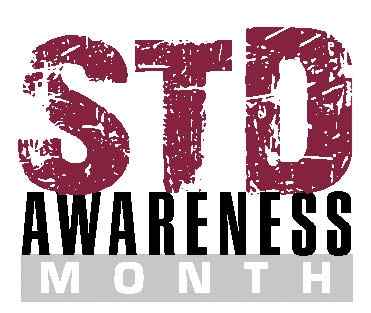April is National STD Awareness Month

April has been deemed STD Awareness month, a national recognition of the growing concern on STD awareness. Every year around this time we encourage sexually active people to get tested and know their status when it comes to sexually transmitted diseases and HIV.
What is an STD
Sexually transmitted diseases are communicable bacteria and viruses that are generally transmitted sexually or through sharing of intravenous needles. Often they can show little to no symptoms or can be mistaken for another illness in which they may be mistreated or not treated at all making unaware people even more susceptible to spreading it further in the community.
STD rates are in general growing across the country with the CDC estimating 19 million new cases every year in the US as of this year (2012). The largest concerns being Chlamydia and Gonorrhea which made up 1.5 cases of reported STDs and HPV the cause of genital warts a potentially dangerous STD that has been linked to many types of cancer including anus, vulva, vagina, penis and some cancers of the, or pharynx (the throat). HIV the virus that causes AIDS is estimated at 1,106,400 people currently living with the virus as of 2006 and an estimated 56,300 newly infected people in the same year in the US alone. Other lesser problematic STDs include Syphilis which has seen a growing trend in certain areas as well as the herpes simplex virus which, is very widespread.
Dangers associated with STDs
Chlamydia and Gonorrhea being the most reported STDs in the U.S. if left untreated can cause infertility in both men and women and can infect others quite easily when no protection is used.
HPV depending on the strain can be virtually harmless with the low risk strains to a serious cancer risk when not properly treated which may have to be on a continuing basis.
HIV and AIDS a virus that can be asymptomatic for years can be life-threatening and needs to be treated on an ongoing basis for life using antiretroviral drugs. The sooner you are diagnosed and begin treatment the better. It is advised that any sexually active people be tested yearly for HIV.
Syphilis if left untreated can cause an array of different issues including high fevers, hair loss, and severe nervous system damage. Syphilis is a treatable STD and it is important to seek treatment immediately to avoid complications.
What can I do to help and stay safe
Our first defense in combating the spread of STDs is practicing safe sex which may include ALWAYS using protection during not only vaginal intercourse, but also oral and anal. Routine yearly testing is also extremely important because if you don’t know you’re infected then your chances of transmitting it to another individual increases. Being in a mutual monogamous relationship decreases your chance of infection. Never share needles with anyone as this is one of the largest ways HIV and some types of hepatitis are spread. And, of course practicing abstinence is the sure fire way to avoid infection.
During this month as well as continuing throughout the year changing the stigma associated with STDs, and encouraging people to get tested is a great way to help raise awareness of the continuing problem. If you need a list of testing facilities in your area here’s a list of places in the US for STD testing.
Add a Badge to Your Website or Blog and Help us Get Everyone Tested!
If you have a blog or website we encourage you to be part of the solution and help us get the word out by writing a short article and adding one of our badges to it so people can get anonymous free testing. If you would like more information on the subject or need any help at all feel free to contact us and we'll do everything we can to help out.
|
powered by Your STD Help |
powered by Your STD Help |
|
powered by Your STD Help |
powered by Your STD Help |